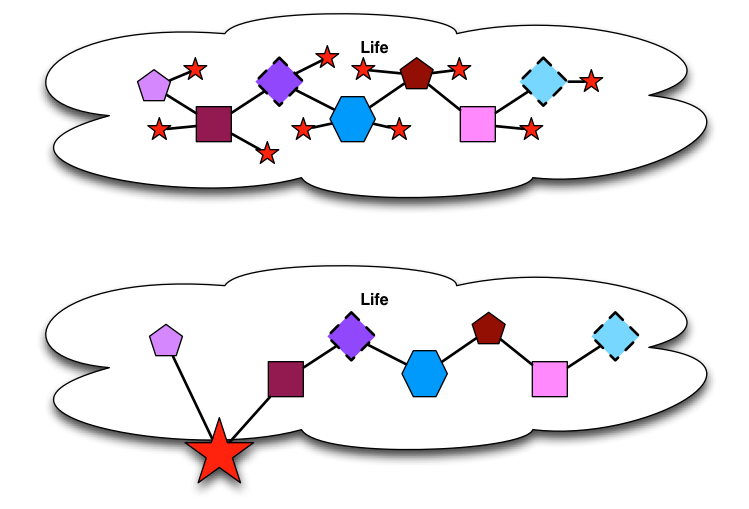My colleague Harold Jarche pointed me to a post by Dave Snowden about deliberative practice, which I found interesting for a facet not part of the key article (which makes worthwhile points). Among a list of important requirements for meaningful activity that is part of effective learning (i.e. it’s not just 10K hours of practice that makes an expert, but what sort of practice has an effect), Dave cites that “at least half of … experiments should fail”. Think about that for a minute.
What that’s saying is that at least half of the money you invest in new things could be conceived of as being wasted. You might be considered a very ineffective manager if 50% of your investments don’t yield returns! Now, first of all, I’m sure you recognize that failed experiments aren’t a complete waste, as long as you learning something (“when you lose, don’t lose the lesson” as the saying goes). Still, 50% might still seem like a high failure rate. But is low risk really good?
I remember hearing a talk by a Canadian AI researcher (who’s name escapes me after all these years) who had studied the optimal ratio of success to failures in helping a system learn. Now this was particular to the learning algorithm he’d chosen, but his result was roughly that you learned fastest if you failed two-thirds of the time, or around 67% failure. Now that’d be pretty disheartening, but if you could take emotion out of the equation, e.g. made it safe to fail, would learning faster be a big enough argument to support bigger failure?
It depends on a lot: on how well you discern the lessons from failure, how well you tolerate failure, how much social scrutiny and how tolerant that public viewpoint is, but it’s interesting to contemplate what might be an optimal context for failure, and given that, what would be the fastest way to learn, and capitalize on that learning. You want your experiments to be designed in the first place to yield maximum information, but if they do, what would a valuable success rate be?
I do believe that they who adapt fastest will be the survivors. That adaptation may be subconscious, but I think conscious reflection is a valuable component. Certainly for sharing the learning, so no one else has to make the same mistakes. So are you learning just as fast as you can?
